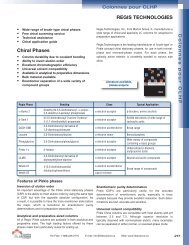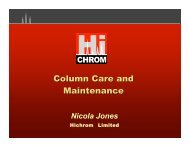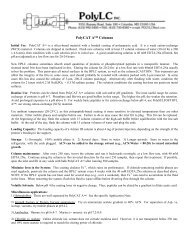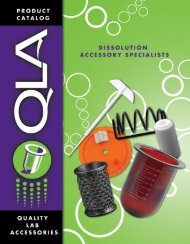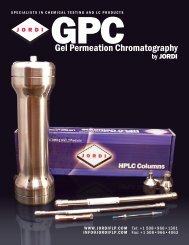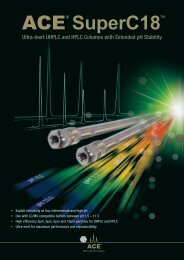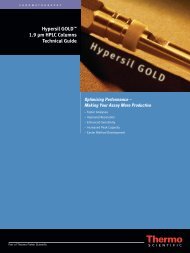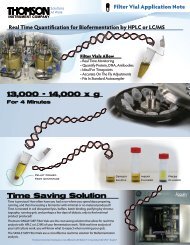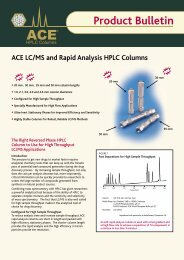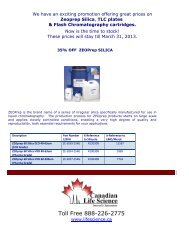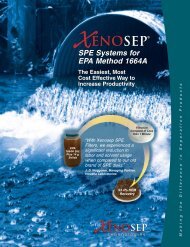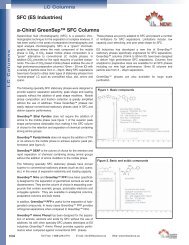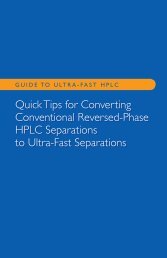Download Entire Catalog - Regis Technologies
Download Entire Catalog - Regis Technologies
Download Entire Catalog - Regis Technologies
Create successful ePaper yourself
Turn your PDF publications into a flip-book with our unique Google optimized e-Paper software.
Chiral Stationary Phases<br />
Chiral Chromatography<br />
Column Durability<br />
The Pirkle CSPs are covalently bonded to the silica, providing excellent<br />
column durability. Covalently bonded phases assure long-lasting<br />
columns and offer added benefits for preparative columns. Our covalently<br />
bonded preparative columns are longer lasting than their coated<br />
preparative column counterparts because noncovalent coatings can<br />
leach off. Additional benefits include the columns’ capacity to tolerate<br />
sample overload.<br />
Ability to Invert Elution Order<br />
An important advantage of the Pirkle CSPs is the ability to invert<br />
elution order by using the same type of CSP, but with the opposite<br />
absolute configuration. As a result, it is possible to have the trace<br />
enantiomer elute before the major—a desirable feature for enantiomeric<br />
purity determinations. For preparative separations it is<br />
beneficial to elute the desired component first.<br />
Analytical and Preparative-Sized Columns<br />
All of <strong>Regis</strong>’ Pirkle HPLC columns are available in both analytical and<br />
preparative sizes. Since all chiral stationary phases are manufactured<br />
on-site, <strong>Regis</strong> can pack special or custom-sized columns quickly and<br />
easily.<br />
Universal Solvent Compatibility<br />
Choice of mobile phase is not a limitation with the Pirkle HPLC<br />
columns. They are compatible with most mobile phases. The pH<br />
of the mobile phase, however, must be between 2.5 and 7.5. Both<br />
normal-phase and reversed-phase modes can be used, although<br />
normal-phase is most common. For normal-phase separations, the<br />
classic mobile phase is a binary or ternary mixture of a hydrocarbon<br />
and a modifier, usually an aliphatic alcohol.<br />
Typical uncharged organic modifers include ethanol, isopropanol and<br />
butanol. Under reversed-phase conditions, water-alcohol mixtures, or<br />
aqueous phosphate buffers with charged organic modifiers are also<br />
employed.<br />
Supercritical Fluid Chromatography (SFC) utilizing carbon dioxide<br />
is now a proven technique for the separation of enantiomers using<br />
Pirkle CSPs.<br />
For more information visit www.registech.com/chiral 7



